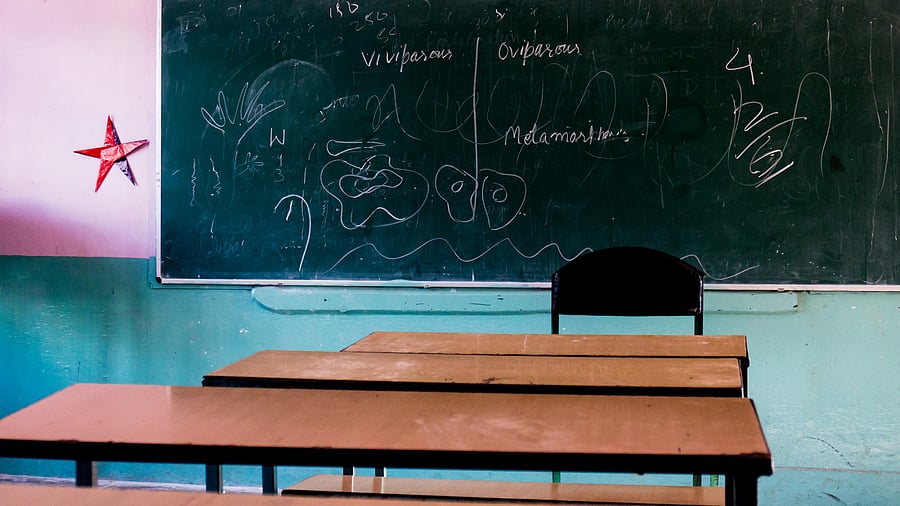
Representative image showing a classroom
Credit: iStock Photo
Going by what has been seen in previous Union Budgets, it can be said with some level of certainty that the upcoming Budget to be announced by finance minister Nirmala Sitharaman on February 1 would also have its fair share of announcements for the education and skill development domains in keeping with the government’s stated focus on youth welfare.
It may be ideal, though, if the latest Budget comes up with a new playbook to address the biggest challenge gripping the education arena in a country having one of the world’s biggest higher education systems globally: its continued inability to produce employable graduates.
After all, it is hardly a great advertisement of the outcome-oriented nature of the education system in the world’s most populous nation having more than 70,000 higher education institutions if ‘about one in two are not yet readily employable straight out of college’, as the Economic Survey for FY 2023-2024 pointed out. This, even if some of the products of the few islands of excellence that prevail in the Indian higher education space have later gone on to become CEOs of top global corporations or successful entrepreneurs.
It is also not desirable for a country banking on its huge youth population to propel its ambitious growth agenda if large numbers of its supposedly ‘educated’ and ‘skilled’ young people find it difficult to find the jobs of their choice due to prospective employers finding them ‘unemployable’.
Allocating more money for the development of physical infrastructure at educational institutions (including vocational education centres), raising financial accessibility to higher education facilities, and encouraging a greater involvement of the private sector in the education sector are all fine measures but by themselves are not enough to significantly move the needle on the employability aspect.
Unless, of course, these are complemented by effective steps to improve the standards of those primarily responsible for imparting education and skills. This means bolstering the quality of teachers engaged with the formal education domain and skills trainers involved with the vocational education space.
If there are question marks surrounding the quality of these people and, by extension, their ability to teach better, it stands to reason that such a scenario would only compound the problems that India faces on the youth employability front. And make it that much more difficult for a nation with a stated commitment to the Sabka Vikas (development for all) principle in realising one of the main targets linked with the United Nations’ Sustainable Development Goal 4 (SDG 4) dealing with ‘quality education’.
Incidentally, the need for having policies to improve the skill sets of teachers was also emphasised at the latest G20 meeting held in Brazil in November. “Professional development policies capable of qualifying and retaining teachers and of stimulating the interest of early-career teachers have become an essential component of the multidimensional challenge of preparing our societies for the future ahead,” the G20 Rio de Janeiro Leaders’ Declaration stated.
Unfortunately, amidst all the focus on boosting physical infrastructure and creating a few more islands of academic excellence, there has not been the same urgency shown in upgrading the standards of our teachers at all levels. The February 1 Union Budget containing some measures in this connection is something one would surely hope for as sticking to the usual script while announcing measures for the education domain may not change things very much for the better on the youth employability front.
(Sumali Moitra is a current affairs commentator. X: @sumalimoitra.)
Disclaimer: The views expressed above are the author's own. They do not necessarily reflect the views of DH.